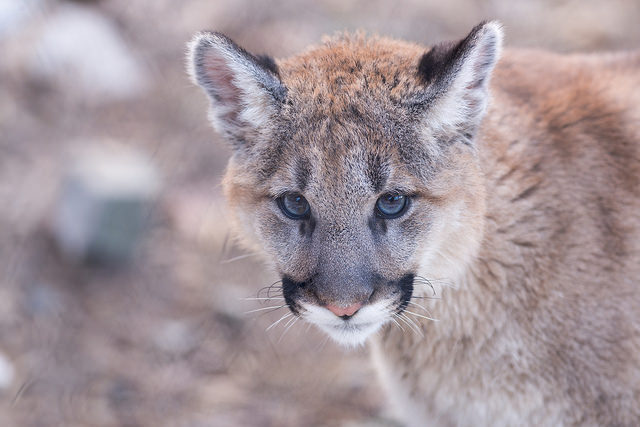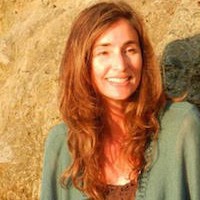Far up a remote dirt road in the Sierra Ancha mountains of Arizona is a place we call the “Top of the World.” When I first went there 25 years ago, I discovered a cave in one of the cliff walls and found myself standing in the middle of a lion’s den.
I traced the outlines of paw prints in the powder-soft sediment, noted the bones and scat and took in the distinct scent of musk. Now, this is wild, I thought, my heart pounding through my chest. Entranced, I watched the exquisite beauty of thunderheads building in the distance, the honeyed storm light sweeping over hundreds of miles of red rock canyon. In that moment, I felt something of myself mirrored back to me—in that moment, my wildness returned.
The gorgeous intelligence of the wild (within and without) is that it can’t be tamed or cultivated without being destroyed or lost. We can track our own wildness—learn to scent it on the wind, follow its impulses and align with its way of knowing. We can embody it and be in the right relationship with it. But we cannot capture, prod, trick, or otherwise co-opt it for our egoic intentions or assimilated agendas. Wildness, quite simply, must stay wild.
In this post-modern information age, we’re often taught to sacrifice our wildness—to bargain it away for a system, structure, or way of being that promises a particular kind of safety, order, technological connectivity, or belonging. But this kind of bargain ultimately leads to an excruciating loss of soul—individually and collectively—that manifests in our culture as a kind of sickness with symptoms including violence, depression, addiction and consumerism.
When we lose contact with the wild spaces in ourselves and in the world, we lose connection with our own essence. This radical sense of loss drives us to look endlessly for the wild or to act out our own wildness in destructive, shadowy and confused ways. Without an authentic relationship with the wild, we look to a kind of false, compensatory contact where we attempt to own, cage, domesticate, suppress or control it—whether that be by imprisoning orcas in torturously small enclosures for our own entertainment, through the $32 billion dollar/a year sex trafficking industry, or through obsessive climbing missions to Mt. Everest (26,000 pounds of human excrement a season).
Wildness is unpredictable, and it doesn’t care about the ego’s safety. Wildness is creative life-force itself—it is the lightning in our blood, the evolutionary impulse that would have us leap from sea to land. It is the fiddlehead uncurling. It is the potency of the seed and the dandelion. It is the tigress pacing and the whale pushing her baby to the surface for its first breath. It is the elemental one of us who knows that the incredible intensity, vulnerability and range of feeling evoked in this embodiment is natural, not something to be avoided, medicated or suppressed. Engaging in an authentic relationship with wildness is essential—it’s a whole other act from our attempts to assimilate, contain, cordon, or draw wildness out of its undomesticated state so it can live in our “safe” world, away from the dangers of being “out there.”
When we remember that we’re quite literally stardust, dark matter, seafoam, storm song, fecund soil and the wild laughter of the infinite—when we allow ourselves to feel the luminous and fierce mystery of infinite wildness within—we move in the world in wholly unexpected ways. We take different risks. We see and know birth and death, growth and decay as part of a whole. We cultivate the extraordinary capacities that live in our very cells—the sensate wisdom of intuition, instinct, erotic intelligence, attunement, resonance, deep listening and unfettered creativity.
The Quechua word for the undomesticated energy of the universe is “salka.” Salka is the unstoppable force that wakes us up from the trance state of consensual reality. It disrupts our habits and unseats the foundations of the status quo. It is the “force that through the green fuse drives the flower.”
A few days ago, I was unexpectedly caught in a fierce spring rainstorm in a local canyon. As the thunder cracked, I found myself fighting, resisting, pushing back against the intensity. As I ran through the pouring rain focused only on shelter, I began to allow the experience in and my whole being began to open in sheer delight. Salka was present and alive in the scent of ozone, the thick of the mud, the howl of the wind and the rising creek as it surged forth with its fullness. My wild heart sang in communion with the wild heart of the world. My salka remembered itself. And I turned back to look at the mountain draped in mists, glistening with streams of rain and sunlight and gave thanks for that which can never be tamed.
Author: Laura Weaver
Editor: Evan Yerburgh
Image: Flickr







Read 0 comments and reply